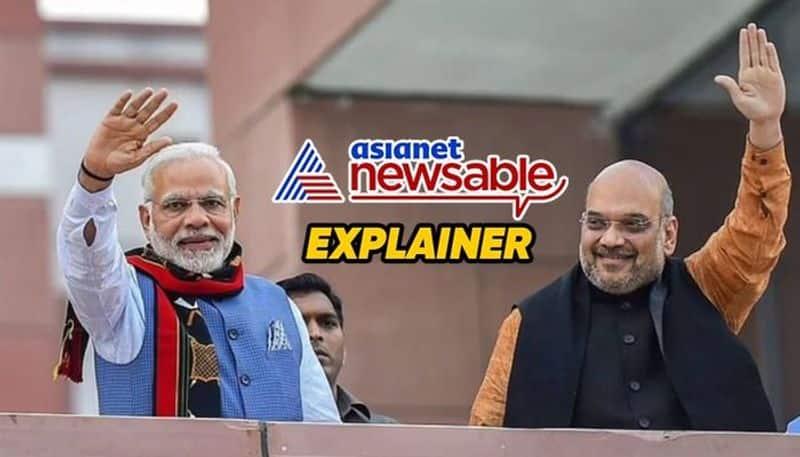
2024 Lok Sabha Elections: 5 Reasons Why Narendra Modi And BJP Have An Upper Hand
While stating that the crucial question was whether the diverse opposition groups could construct a forward-looking and flexible political narrative, the expert underscored that time is a pressing factor, and the opposition faces a challenging task in overcoming the formidable BJP.
According to him, the five-state election verdict underscored the widely acknowledged fact that, in the context of the upcoming 2024 parliamentary elections, the BJP maintained a strong position, primarily driven by Prime Minister Modi's enduring popularity.
According to Morning Consult, a global leader approval tracking platform, 78 per cent of Indians surveyed in late November approved of Modi's job performance, with a remarkable net approval rating of +60. This substantial popularity has remained consistent since August 2019. Domestic polls indicated that the BJP-led National Democratic Alliance (NDA) is likely to secure a majority of seats in the Lok Sabha, even if somewhat reduced compared to its 2019 tally
Milan outlined five issues worth watching in the run-up to 2024 -- the diminishing ability of state elections to predict outcomes, the complexities in coordinating opposition efforts, the competition for support among backward castes, the escalating competition in welfare initiatives, and the growing significance of foreign policy as a mass concern.
State and National Election
The recent state assembly polls, while cause for BJP celebration, should be approached with caution, he warned. Historically, there was a correlation between state and national elections, but this link has weakened in recent years. For instance, the Congress Party's triumph in the 2018 Chhattisgarh assembly elections did not translate into success in the subsequent Lok Sabha polls. However, with Modi's enduring popularity, there is speculation that this correlation might strengthen in 2024
Fragmented Opposition
According to Milan, the challenge of opposition coordination has been a recurring theme, with the BJP benefiting from a fragmented opposition in 2014 and 2019. To counter this, over two dozen opposition parties formed the Indian National Developmental Inclusive Alliance (INDIA). While the alliance aims to unite against the BJP, challenges include forming a common platform, the absence of a clear leader, and the complexity of negotiating seat-sharing agreements.
OBC Allegiance
The battle for the allegiance of Other Backward Classes (OBCs) is another critical factor, the expert said. The BJP's success in attracting OBC voters, a key demographic, has been integral to its electoral victories. However, the Mandal parties are seeking to reclaim this support, leveraging issues like a comprehensive caste census and proportional reservations in government jobs.
Competitive Welfarism
Competitive welfarism emerges as a fourth factor for the expert, with the BJP's "new welfarism" initiatives impacting voting behaviour. Investments in public distribution of goods and direct cash transfers have influenced voters, as evidenced in the 2019 elections. In the recent state polls, promises of financial transfers featured prominently, with parties vying to outdo each other in welfare pledges.
Foreign Policy as a Mass Issue
The final factor, according to Milan, is the evolving role of foreign policy as a mass issue. Traditionally seen as an elite concern, Modi has blurred the lines between elite and mass issues, particularly with events like the 2019 Pulwama attack and subsequent airstrikes in Pakistan. There is a perception that Modi has elevated India's global standing, and the government's efforts to showcase this on the global stage, such as the G20 presidency, are seen as politically significant.
Milan summarised that as the race for 2024 gained momentum, the ruling BJP unmistakably held a significant advantage. Following the disappointing outcomes in state elections, the opposition finds itself compelled to regroup, he said, adding that leaders across the opposition spectrum have rhetorically embraced a temporary truce to address a perceived existential threat collectively. Notably, even the Congress Party, often criticized for dynastic tendencies, has presented a leader whose surname, for the first time in a while, is not Gandhi. The crucial question, according to the expert, revolves around whether the diverse opposition factions can construct a forward-looking and adaptable political narrative. The opposition faces a formidable challenge, and the constraint of time adds to its difficulties.
Legal Disclaimer:
MENAFN provides the
information “as is” without warranty of any kind. We do not accept
any responsibility or liability for the accuracy, content, images,
videos, licenses, completeness, legality, or reliability of the information
contained in this article. If you have any complaints or copyright
issues related to this article, kindly contact the provider above.


















Comments
No comment